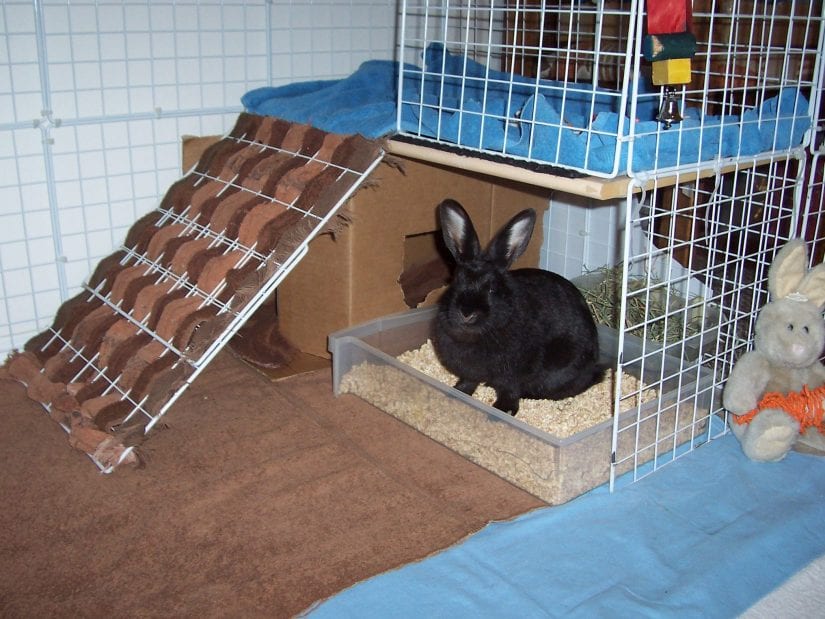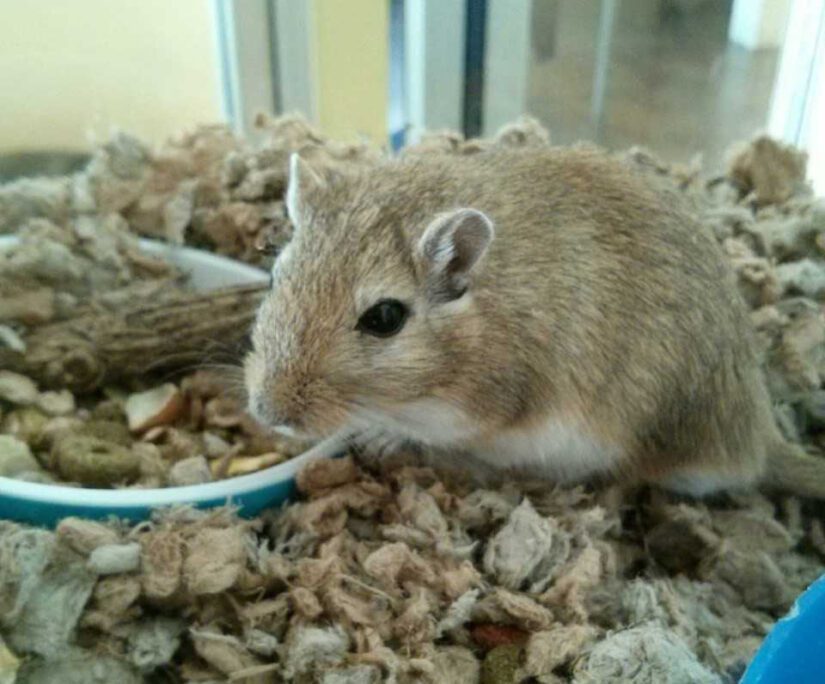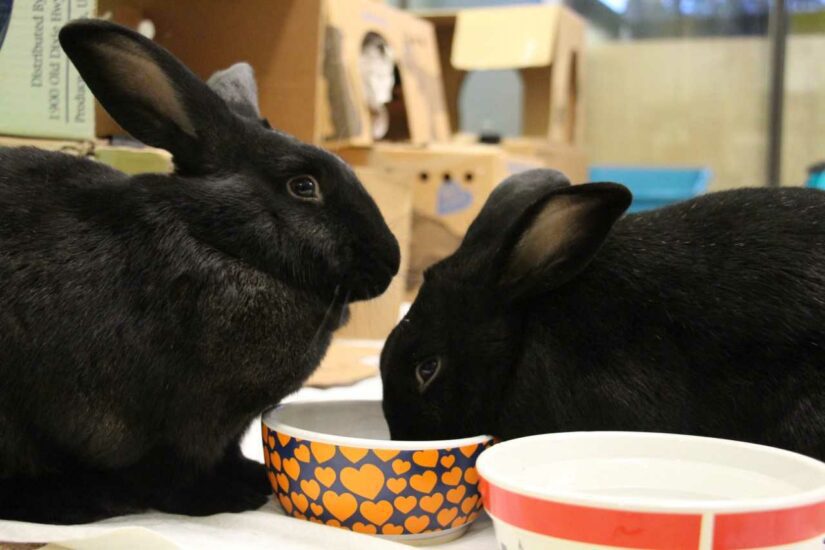We all know it’s important to keep dogs and cats cool in the summer heat, but don’t forget that small animals like rabbits, rats and guinea pigs also need protection to avoid the dangers of heat and heat stroke.
There are some simple things you can do to keep them cool and safe when temperatures rise.
- Turn on AC if you have it
- Set up fans to blow a breeze around (but not directly on pets), and cover part of their enclosure with a damp towel to cool the air even more
- Freshen water often and add ice cubes to their water dish to help keep it cold
- Keep animals in cooler areas such as basements during heat waves
- Ensure enclosures have some uncovered smooth surfaces such as floors, ledges or platforms with no bedding (e.g., areas without newspaper, towels, or blankets)
- For animals with water bottles, regularly check that the spout isn’t blocked
- Provide more than one water source

Use cool enrichment items:
Chilled enrichment items can help your small animals keep cool in the heat. Make sure that whenever you put an item in a freezer to cool it down, you allow it to thaw for a few minutes before coming into direct contact with your pet and that your pet has space to move away from any frozen item placed in their enclosure.
- For rabbits, chinchillas, rats and guinea pigs, put a ceramic tile or plate in the freezer or fridge and then place it in their enclosure as an optional surface to lay on to cool down
- For hamsters, mice and gerbils, put a ceramic mug or small terracotta pot in the fridge or freezer and then place it in their enclosure (turned on its side) to use as a cool hideout
- For hamsters and gerbils, you can cool their sand bath in the fridge or freezer before giving it to them
- Frozen water bottles, which can be wrapped in an old sock
- Fresh refrigerated veggies and fruit (can also rinse these in cold water right before giving them to provide an extra source of moisture)
- For rats, let them play bobbing for peas (shallow dish of cool water with frozen peas for them to fish out and eat)

Let the animal tell you what they want
Many animals will want less physical contact and activity when they are hot.
Signs of heat stress or heat stroke in small animals:
Rabbits, chinchillas, guinea pigs and ferrets are especially susceptible, but all animals are at risk of heat stroke. Old or overweight animals are at an increased risk.
- Reddish ears (in rabbits)
- Panting, open-mouth breathing
- Drooling, salivating, anxiety
- Diarrhea (and vomiting in ferrets)
- Lethargy, weakness, collapse, seizures
- High body temperature, rapid heart rate
If your pet shows symptoms of heat stroke or stress:
- Immediately move the animal to a cool/shady place
- Dampen the animal’s fur with cool water
- Use a fan to promote evaporation
- DO NOT use ice or alcohol on the animal as this can make heat stroke worse
- Contact your veterinarian
An episode of heat stroke can predispose animals to future problems with heat stress.

